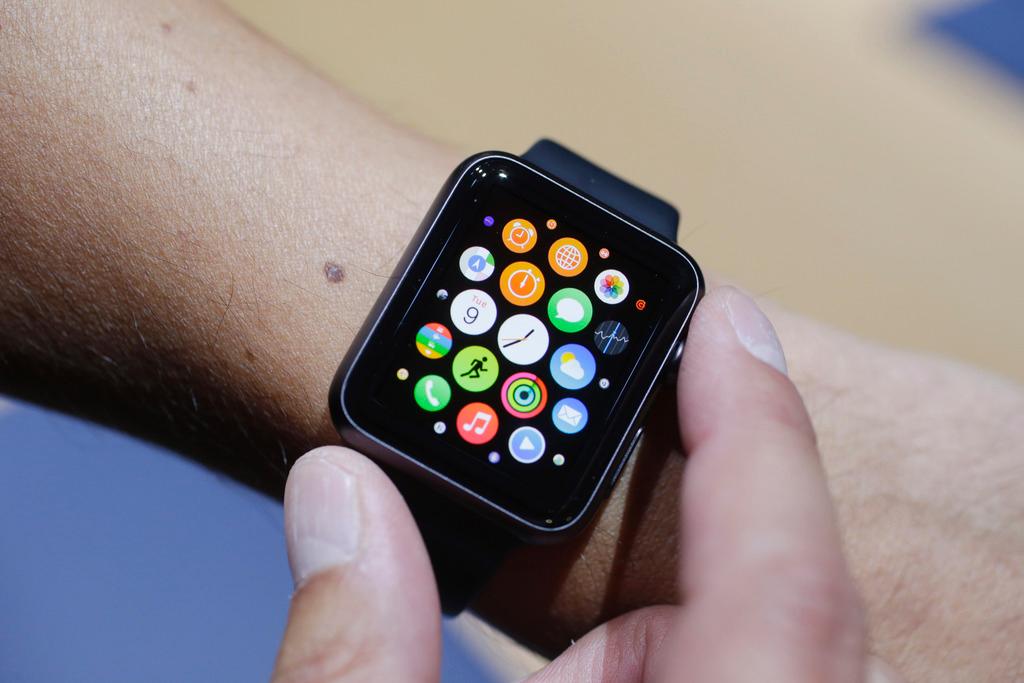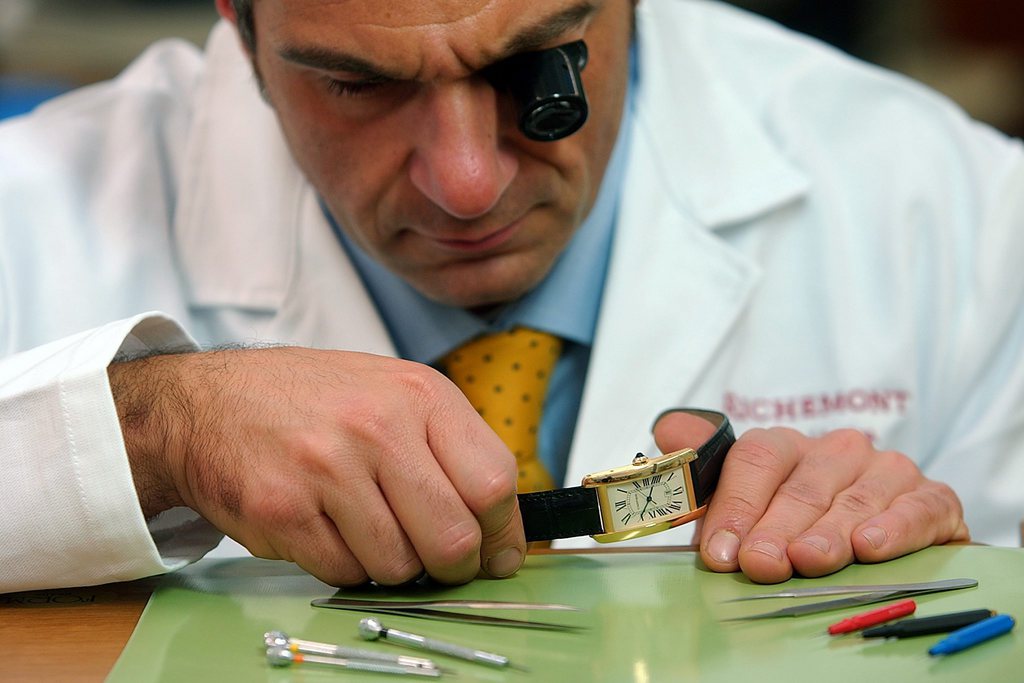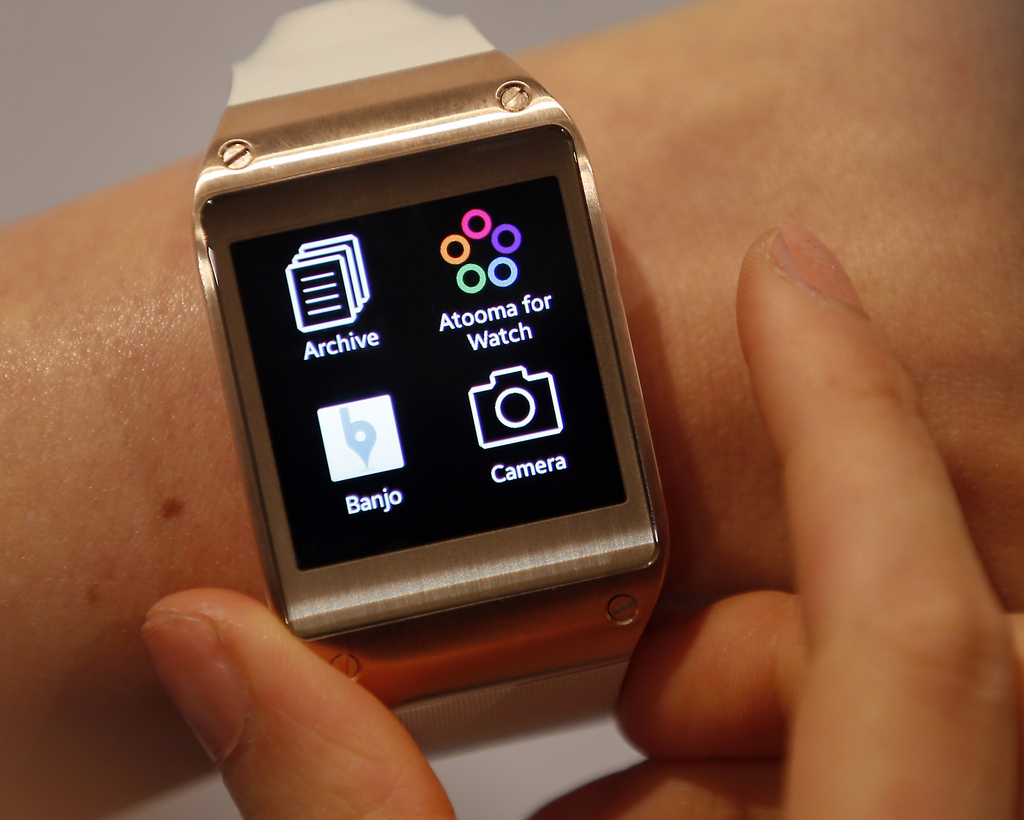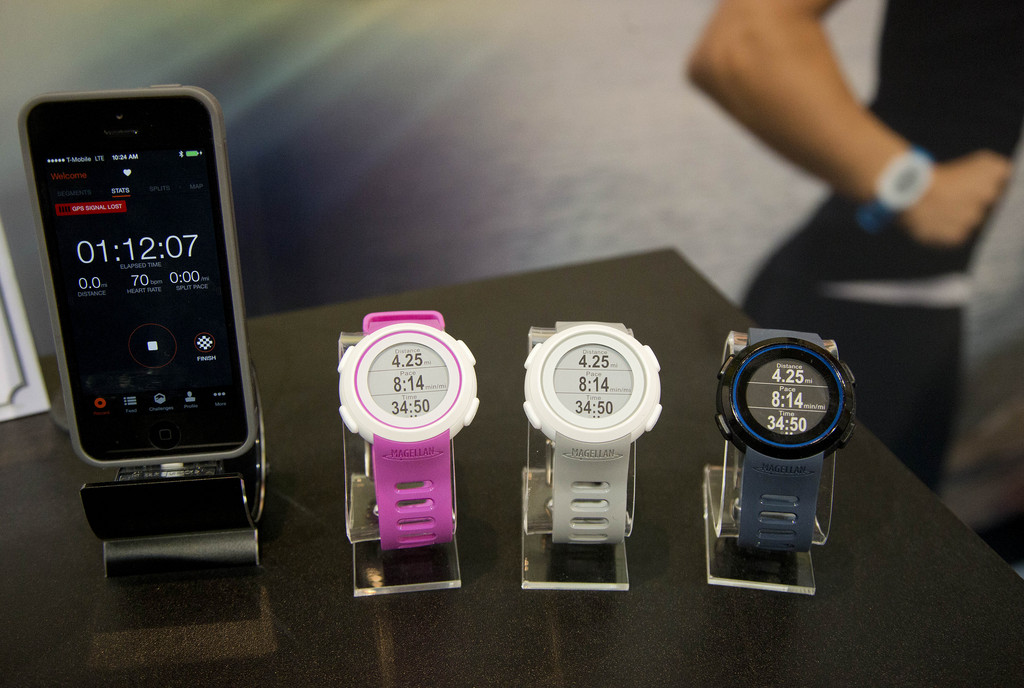Swatch inventor: Swiss watch industry missed the smartwatch boat

Elmar Mock, co-inventor of the Swatch watch, believes the Swiss watch industry ignores the Apple Watch at its own peril. He sees it repeating the mistakes from the 1970s, when it underestimated competition from Japanese quartz watches.
In 1970, Elmar Mock invented the Swatch along with Jacques Müller and Ernst Thomke. It was designed as an affordable product that could compete with the cheap Japanese quartz watches that flooded the market. Currently the director of Creaholic, an innovation consultancy, Mock shares his views on the Swiss reluctance to enter into the smartwatch fray.
swissinfo.ch: Many predict the Apple Watch will be as disruptive to the market as the Mac, iPhone or iPad. Do you share this view as well?
Elmar Mock: The big deal is not the Apple Watch itself but the fact that an electronics giant like Apple has entered the watch market. It makes total sense to have a communication tool on the wrist and, in my view, this strategic space has enormous market potential.
The biggest challenge lies in the digital environment and the consumer experience that a smartwatch can offer. There is a lot to learn in this new area but it’s only possible to learn by creating. This is where I think electronics giants like Google, Samsung or Apple are winning the battle.
swissinfo.ch: But are consumers ready for such products that some dismiss as mere gadgets?
EM: The Apple Watch is by far the most attractive of the smartwatches. I would definitely wear it. Don’t forget that the early smartphones did not immediately replace conventional mobile phones. When the iPhone first launched, Blackberry was sure that consumers would notice the lack of a keyboard and Nokia was convinced that the big screen would put users off…
swissinfo.ch: Should the Swiss watch industry fear the smartwatch invasion, as suggested by Apple’s chief designer Jonathan Ive?
EM: Switzerland has already lost the wrist war. Only one of every 200 watches produced [worldwide] is a Swiss watch. However, the profit made on that one Swiss watch is greater than that of the other 199 combined. So, we’ve won the profit war.
Swiss watchmaking has transformed a watch into mechanical jewellery that represents the ingenuity of manual craftsmanship. It has also excelled in design, marketing and communication. Smartwatches are not going to completely replace mechanical watches just like the Kalashnikov assault rifle is not going to make samurai swords any less desirable.
On the other hand, Switzerland has missed a tremendous opportunity and it is shocking that the leaders of the watch industry do not find the smartwatch market a tempting prospect. This market could be worth $30 billion (CHF28 billion), assuming a realistic figure of 100 million smartwatches sold every year. This amount would benefit the entire Swiss watch industry.
swissinfo.ch: Is Nick Hayek, head of the Swatch group, an example of this nonchalant attitude towards smartwatches?
EM: Clearly! It’s understandable why [luxury brands] Breguet, Rolex, Cartier or Patek Philippe are disinterested. Swatch, on the other hand, should be taking a leading a role. Swiss watchmakers seem to have forgotten how they underestimated Japanese quartz watches in the 1970s as mere gadgets and not real watches. That mistake led to the near collapse of the watch industry.
However, through Swatch, we eventually succeeded in creating a stylish quartz watch. But we then failed to follow up and re-conquer the global watch market through investment in industrialisation. Obsessed by short-term gains, the Swatch group did a complete U-turn towards luxury watches. Instead of investing in ideas, the group chose to invest in luxury watch brands and showrooms all over the world.
swissinfo.ch: Does the Swiss watch industry lack diversity?
EM: It is definitely a risk. The industry is beginning to resemble a Native American reservation. It has deliberately refused to be a part of recent changes, not through a lack of creativity or innovation, but due to strategic choice.
Unfortunately, Switzerland lacks a Steve Jobs who can drag the watch industry into the future. It doesn’t necessarily mean the industry is on the wrong path, but it does mean that it has missed the boat as far as smartwatches are concerned
Presented on Tuesday, Apple’s first-ever smartwatch will be available in stores at the beginning of 2015. At a starting price of $349 (CHF327), the watch comes in two screen sizes with a series of interchangeable straps. It is also equipped with sensors that monitor the wearer’s pulse and activity levels. The Apple Watch will only work with the iPhone.
“It is the next chapter in Apple’s story,” said Apple’s CEO Tim Cook when presenting the watch at the much-anticipated launch in California.
Cook sought to prove that the brand has not lost its ability to innovate since the loss of its legendary founder Steve Jobs in 2011.
(Translated from French by Anand Chandrasekhar)

In compliance with the JTI standards
More: SWI swissinfo.ch certified by the Journalism Trust Initiative




You can find an overview of ongoing debates with our journalists here . Please join us!
If you want to start a conversation about a topic raised in this article or want to report factual errors, email us at english@swissinfo.ch.